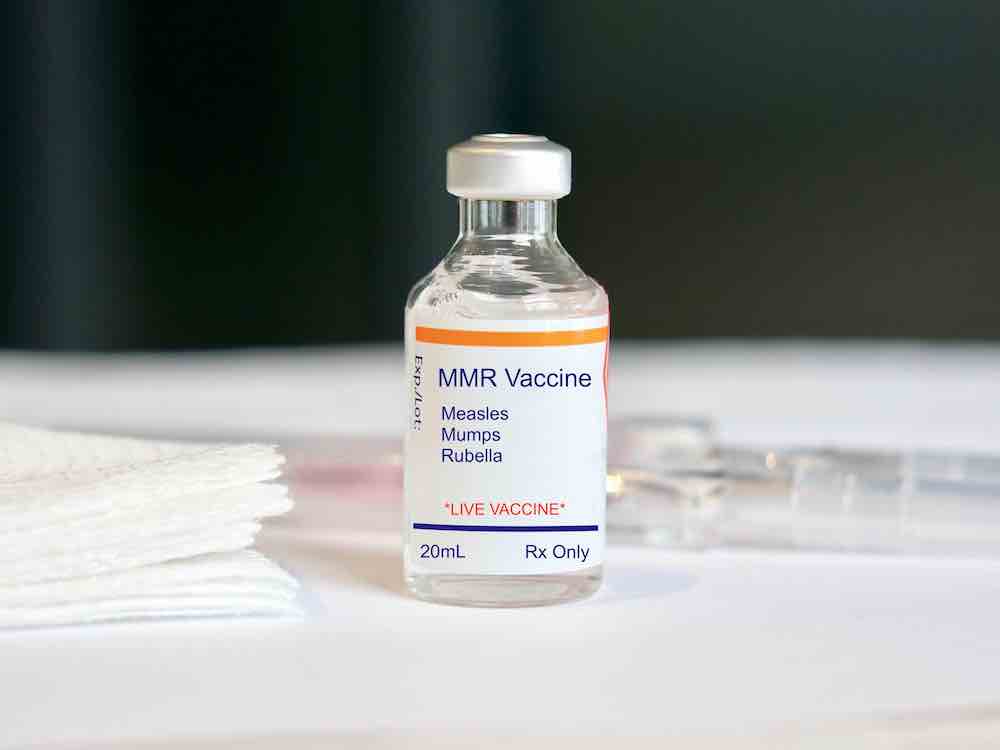My only criticism of vaccines is that they tend to induce amnesia in the vaccinated. After a healthy generation or two, vaccines begin to seem optional. Then the diseases they protect against come right back.
In the past 60 years North Americans have forgotten measles, though it once infected millions of kids every year, hospitalized thousands and killed about one in every 1,000 cases. According to the World Health Organization, “Before the introduction of measles vaccine in 1963 and widespread vaccination, major epidemics occurred approximately every two to three years and caused an estimated 2.6 million deaths each year.”
Measles is still a problem in some poorer countries, but it’s now poised to stage a comeback right here in Canada and the United States. That, in turn, will bring a return of many other diseases — because measles has the unusual ability to induce amnesia in the human immune system.
The disease has been around a long time: it seems to have mutated from a livestock disease called rinderpest some 2,500 years ago. Since then it’s adapted itself to infect only humans, and to do it extremely well. WHO says measles “infects the respiratory tract and then spreads throughout the body. Symptoms include a high fever, cough, runny nose and a rash all over the body.”
According to the U.S. Centers for Disease Control and Prevention, an infected person can pass the infection on to nine out of 10 unvaccinated people. The virus can survive for up to two hours in a room after an infected person has left it, both in the air and on surfaces. By comparison, a person with COVID-19 might spread the disease to six people at most, and more likely two.
In December 2023, WHO’s European region reported “an alarming rise in measles cases. Over 30,000 measles cases were reported by 40 of the region’s 54 member states between January and October 2023. Compared to 941 cases reported in all of 2022, this represents a more than 30-fold rise.” The cases included almost 21,000 hospitalizations and five deaths.
Just a little backsliding
WHO said “backsliding in vaccination coverage” was the chief cause of these cases, but the backsliding was strikingly small: people with one dose decreased from 96 per cent in 2019 to 93 per cent in 2022, and those with a second dose dropped from 92 per cent to 91 per cent. But a percentage point can still be a big number. “In all,” WHO said, “over 1.8 million infants in the [European] Region missed their measles vaccination between 2020 and 2022.” A research team in India says vaccinations fell because of interruptions in vaccine distribution, less accessibility to health care, and simple fear of mingling with others in vaccination clinics, as well as wars, displacement and lockdowns.
Meanwhile the Pan American Health Organization has issued an epidemiological alert, asking member countries to intensify vaccination programs. “After years of decline in vaccination coverage,” PAHO noted, “measles cases increased globally by 18 per cent in 2022 and 64 per cent in 2023, compared to previous years.”
In the United States, where measles was declared eradicated in 2000, 704 cases were reported in 2019, including 44 imported from overseas. According to the CDC, “Outbreaks in close-knit communities accounted for 88 per cent of all cases.” Some close-knit communities include religious groups that reject vaccination, like the Christian community in Chilliwack, B.C., that endured an outbreak in 2017.
Measles cases then fell to just 13 in 2020 — clearly thanks to measures designed to slow the spread of COVID-19. Cases rose slightly between 2021 and 2023, and nine were reported in the first three weeks of this year.
According to the Public Health Agency of Canada, we have so far seen just one new measles case this year. Another measles case has recently been reported in a child who had been in school and several health-care facilities for over a week before being diagnosed. We can hope that the child’s contacts were all vaccinated.
But a 2022 study of Canadians’ immunity levels to measles reported: “Our findings indicate that measles immunity in Canada is below the 95 per cent immunity threshold required to sustain measles elimination, underscoring the importance of maintaining high vaccine coverage to prevent future measles outbreaks and sustain Canada’s elimination status.”
So we’re at some risk of a serious outbreak of measles thanks to immunity levels that are high but not high enough, compounded by rapid air travel and a break in routine childhood vaccinations.
Disinformation during the early years of the pandemic has aggravated vaccine hesitancy; parents who are themselves vaccinated may transfer their anxiety about COVID vaccines to other vaccines as well, including those for measles. Public health officials likely expect any vaccination campaign to trigger still more disinformation and online abuse of health-care workers.
Not the only problem
Measles outbreaks won’t be the only problem. We’ve known since at least 2019 that the measles virus can effectively erase immunity to diseases contracted earlier. So we might survive measles only to contract opportunistic infections we’ve had before and thought we’d beaten... including COVID-19.
And we now know that repeated COVID-19 infections, however “mild,” can increase the likelihood of long COVID — which can do serious damage to the brain, heart, gut and kidneys. Statistics Canada estimates that 3.5 million Canadians have had long COVID symptoms, and in June 2023 half of those still reported no improvement. More than two in five were still experiencing long COVID symptoms a year after infection.
So while we may not like talking about COVID-19 these days, it has already imposed a heavy burden on Canadians’ health. A new outbreak of measles could intensify that burden. People who thought they had recovered from COVID could be susceptible to reinfection — not to mention other infectious diseases, including tuberculosis.
Clearing the air
We likely reduced the incidence of influenza and common colds by masking, distancing and avoiding crowds early in the pandemic before we even had vaccines. But it would be hard to get people behaving like that again. Vaccines, thanks to the disinformers, will remain a hard sell with a significant fraction of the population.
But one measure we could take is a drastic improvement in ventilation and air filtration in workplaces, classrooms and crowded public places. The technology is cheap and easily available.
We are furious and scandalized when drinking water isn’t safe, or sewage isn’t properly disposed of. Yet we continue to put our kids (and ourselves) in crowded classrooms and public spaces that may be thick with infectious viruses and bacteria, not to mention wildfire smoke.
Vaccines and masks may be politically dangerous issues, but it’s hard to make a case against clean air — especially when airborne diseases like measles are poised to return. ![]()
Read more: Health
















Tyee Commenting Guidelines
Comments that violate guidelines risk being deleted, and violations may result in a temporary or permanent user ban. Maintain the spirit of good conversation to stay in the discussion and be patient with moderators. Comments are reviewed regularly but not in real time.
Do:
Do not: